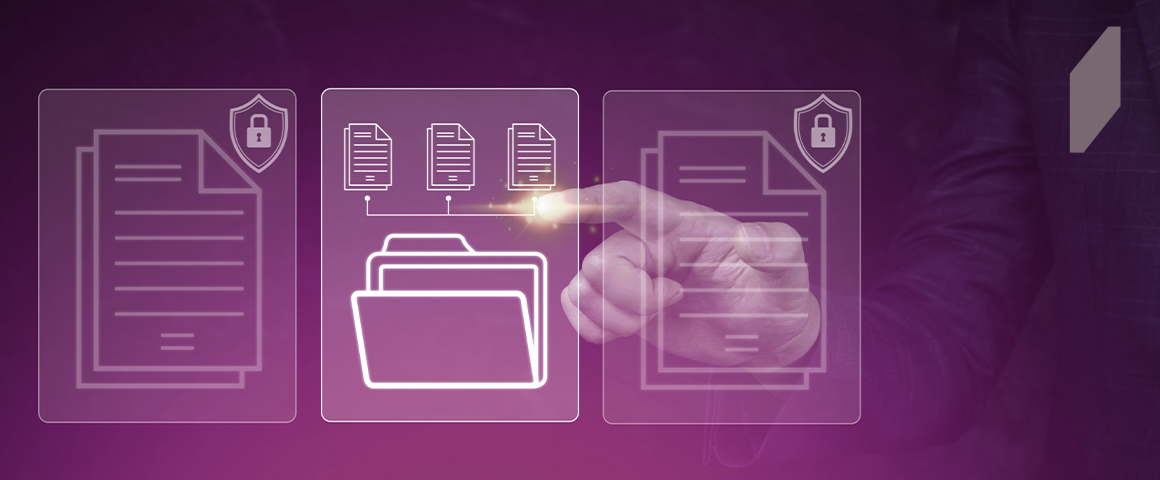Clause Library – Ensure Compliance & Streamline Your Workflow
A contract clause library is a centralized repository of pre-approved, standardized clauses and provisions that can be easily incorporated into contracts. By leveraging a library of common contract clauses, organizations can significantly reduce the time and effort required to draft, review, and execute agreements.
With a well-structured library, you can ensure that every contract adheres to legal requirements, regulatory standards, and organizational policies. This consistency mitigates risk, prevents disputes, and strengthens your company’s legal position. Moreover, a contract clause library facilitates collaboration among legal, finance, and business teams, as everyone works from the same set of approved languages.
In this article, we’ll journey throughout the world of contract clause libraries. We’ll explore what they are, how they work, and the benefits they offer. You will also get practical guidance on building and maintaining your own library. get started on the path to smarter, more efficient contract management.
What is a Contract Clause Library?
Clause vs Provision
To understand what is a clause in a contract, it’s essential to grasp the difference between clauses and provisions. A clause is a specific section of a contract that addresses a particular aspect of the agreement, such as indemnification or intellectual property rights. Clauses are the building blocks of a contract, and each one serves a distinct purpose.
By comparison, a provision is a more general term referring to any stipulation or condition within a contract. Provisions can encompass clauses, but can also include other elements like definitions, recitals, and exhibits.
Consider that a non-disclosure agreement (NDA) may have a confidentiality clause that prohibits parties from sharing sensitive information. The clause would detail what constitutes confidential information, the obligations of the receiving party, and the duration of the confidentiality period. This specific clause is part of the broader confidentiality provision, which may also include exceptions to confidentiality and the consequences of a breach.
Understanding the distinction between clauses and provisions is crucial when creating a contract clause library. It allows you to organize and categorize your clauses effectively, making them easier to find and use when drafting agreements.
Standardizing Language for Clarity and Consistency
One of the primary benefits of a contract clause library is the standardization of language across agreements. Using consistent, pre-approved language helps ensure clarity and reduces ambiguity in contracts.
Ambiguous language if not used intentionally and carefully can lead to misinterpretations and disputes. Standardizing clauses eliminates this risk by providing clear, consistent language that is approved by the organization and its legal function. . This approval is particularly important when it comes to common contract clauses like indemnification, limitation of liability, and termination.
standardized language facilitates smoother negotiations. When all parties are working from the same set of clauses, there is less room for confusion or disagreement. This shared understanding can help expedite the negotiation process and reduce the time and resources spent on contract revisions.
Standardization also promotes consistency across an organization’s contracts. This consistency is essential for maintaining a strong legal position and mitigating risk. Using the same language for similar provisions ensures that the company’s interests are protected uniformly, regardless of the specific agreement.
standardizing language through a contract clause library brings clarity, consistency, and efficiency to the contracting process. It reduces ambiguity, streamlines negotiations, and strengthens the organization’s legal standing.
Benefits of Implementing a Clause Library
Implementing a contract clause library offers numerous advantages for organizations. From ensuring regulatory compliance and mitigating risks to accelerating contract creation and facilitating knowledge sharing, a clause library is a powerful tool for enhancing contract management processes. Let’s explore these benefits in more detail.
Ensuring Regulatory Compliance
A significant benefit of a contract clause library is its ability to help organizations maintain compliance with relevant laws, regulations, and industry standards. A well-maintained library includes clauses that have been vetted by legal experts to ensure they meet the latest legal requirements.
This is important in industries with strict compliance obligations, such as healthcare & life sciences, finance, and government contracting. Using pre-approved clauses from a library reduces the risk of non-compliance and helps organizations avoid costly penalties and legal disputes.
clause library makes it easier to update contracts when regulations change. Instead of manually reviewing and revising each agreement, organizations can update the affected clauses in the library and ensure all future contracts incorporate the necessary changes. This centralized approach to compliance management saves time and resources while reducing the risk of errors.
Accelerating Contract Creation and Review
A contract clause library significantly accelerates the contract creation and review process. With a repository of pre-approved clauses at their fingertips, legal teams can draft agreements more quickly and efficiently. Instead of starting from scratch or searching for previously used language, they can easily access and incorporate relevant clauses from the library.
This not only saves time but also reduces the risk of errors and inconsistencies that can arise when drafting contracts manually. A clause library can improve efficiency by allowing users to search for and insert clauses directly into their contracts, streamlining the drafting process.
A clause library can also expedite contract review by providing a standard set of clauses that have already been vetted and approved. This reduces the need for extensive legal review and negotiation, as all parties can work from a common understanding of the terms and conditions. The result is faster contract turnaround times and increased productivity.
Mitigating Risks Through Consistency
Consistency is crucial for effective risk management in contract management. Using a contract clause library ensures that all agreements across an organization use consistent terms. This consistency reduces the risk of misinterpretation, a lack of standards across agreements, and potential disputes.
When clauses are standardized and pre-approved, there is less room for ambiguity or confusion. All parties have a clear understanding of their rights and obligations, which helps prevent misunderstandings that can lead to costly disputes.
Consistent language helps organizations maintain a strong legal position. When all contracts use the same clauses for similar situations, it becomes easier to enforce terms and defend against legal claims. This is particularly important in areas like intellectual property protection, confidentiality, and indemnification.
A contract clause library also makes it easier to identify and mitigate potential risks during the drafting process. Approved clauses can be designed to allocate risk appropriately and protect the organization’s interests, reducing overall exposure.
Facilitating Knowledge Sharing and Collaboration
A centralized contract clause library facilitates knowledge sharing and collaboration among teams. Legal, procurement, sales, and other departments can access and use the same set of approved clauses, ensuring consistency and alignment across the organization.
This centralization also makes it easier for teams to learn from each other’s experiences. If one team encounters a particularly effective clause or negotiates a favorable term, they can share it with the wider organization through the library. This knowledge-sharing helps build institutional memory and prevents teams from reinventing the wheel.
A clause library is a valuable resource for training and onboarding new team members. Rather than relying solely on the knowledge of individuals or scattered resources, new employees can quickly familiarize themselves with the company’s standard clauses and best practices.
Collaboration is easier to achieve when the clause library software allows for version control, commenting and approval workflows. Teams can work together seamlessly to refine and update clauses to keep the library a dynamic and evolving resource.
Best Practices for Building Your Clause Library
Building an effective clause library requires careful planning and execution. To create a library that meets your organization’s needs and delivers maximum value, consider the following best practices. These tips cover key areas such as stakeholder involvement, clause organization, update processes, and integration with contract lifecycle management software.
Involving Key Stakeholders
Creating a comprehensive and effective clause library requires input and collaboration from key stakeholders across the organization. Engaging legal, compliance, finance, and business teams in the development process ensures that the library addresses the diverse needs and perspectives of all users.
Legal and compliance teams can guide regulatory requirements and risk management considerations. They can help identify essential clauses, such as consideration clauses and time of performance clauses, and ensure they are drafted in a way that protects the organization’s interests.
Finance and business teams can offer insights into commercial terms and operational requirements. Their input can help shape clauses related to pricing, payment, and service-level agreements. Collaborating with these stakeholders also promotes buy-in and adoption of the library across the organization.
Organizing and Categorizing Clauses
A well-organized clause library is essential for easy navigation and efficient use. Start by defining clear categories and subcategories based on the types of contracts and clauses your organization deals with regularly. Common categories might include confidentiality, intellectual property, indemnification, and termination.
Within each category, consider creating subcategories or tags to further refine the organization. For example, under the “payment” category, you might have tags for “net 30,” “upfront payment,” or “milestone-based.”
Use clear, descriptive names for categories and clauses to make them easily searchable. Consider implementing a consistent naming convention that includes the clause type, purpose, and any relevant keywords.
Lastly, use metadata and tagging to enable advanced search capabilities. This allows users to quickly find clauses based on specific criteria, such as contract type, jurisdiction, or business unit.
Establishing Update and Approval Processes
Keeping your clause library up-to-date and accurate is crucial for maintaining its value and effectiveness. Establish clear processes for adding new clauses, modifying existing ones, and retiring outdated language.
Assign ownership and responsibility for maintaining the library to a dedicated team or individual. This ensures that updates are made consistently and regularly.
Implement a formal approval process for new and modified clauses. This typically involves legal and compliance review to ensure the language meets regulatory requirements and aligns with the organization’s risk tolerance.
Consider setting up automated reminders and workflows to prompt periodic reviews of the library. This helps identify clauses that may need updating due to changes in laws, regulations, or business practices.
Regularly communicate updates and changes to library users to ensure everyone is working with the most current versions of clauses.
Conclusion
A well-built contract clause library offers immense value for your organization. Implementing a clause library enables you to enhance contract compliance, increase efficiency, and mitigate risks in your contract management processes.
With a centralized repository of pre-approved clauses at your fingertips, you ensure that all your contracts adhere to legal and regulatory requirements. This consistency protects your organization from costly penalties and disputes, giving you peace of mind.
A clause library empowers you to accelerate your contract creation and review process. You’ll be able to draft agreements more quickly and accurately, saving valuable time and resources. This efficiency allows you to scale your contract management operations and focus on high-value tasks.
Using standardized language across your agreements helps mitigate risks and prevent misinterpretations. This consistency strengthens your legal position and helps you avoid disputes, protecting your organization’s interests.
A clause library also enables you to share knowledge and collaborate more effectively with your colleagues. You can leverage proven language and best practices, ensuring alignment and driving successful outcomes.
Building an an effective clause library requires engaging key stakeholders, organizing your clauses thoughtfully, establishing robust update processes, and integrating the library seamlessly into your with your CLM solution. Investing time and effort into these best practices will help you create a valuable resource that elevates your contract management processes.
Whether you’re building from scratch or enhancing an existing library, the benefits are within your reach. Take action today and unlock the potential for greater compliance, efficiency, and success in your contract management journey.






